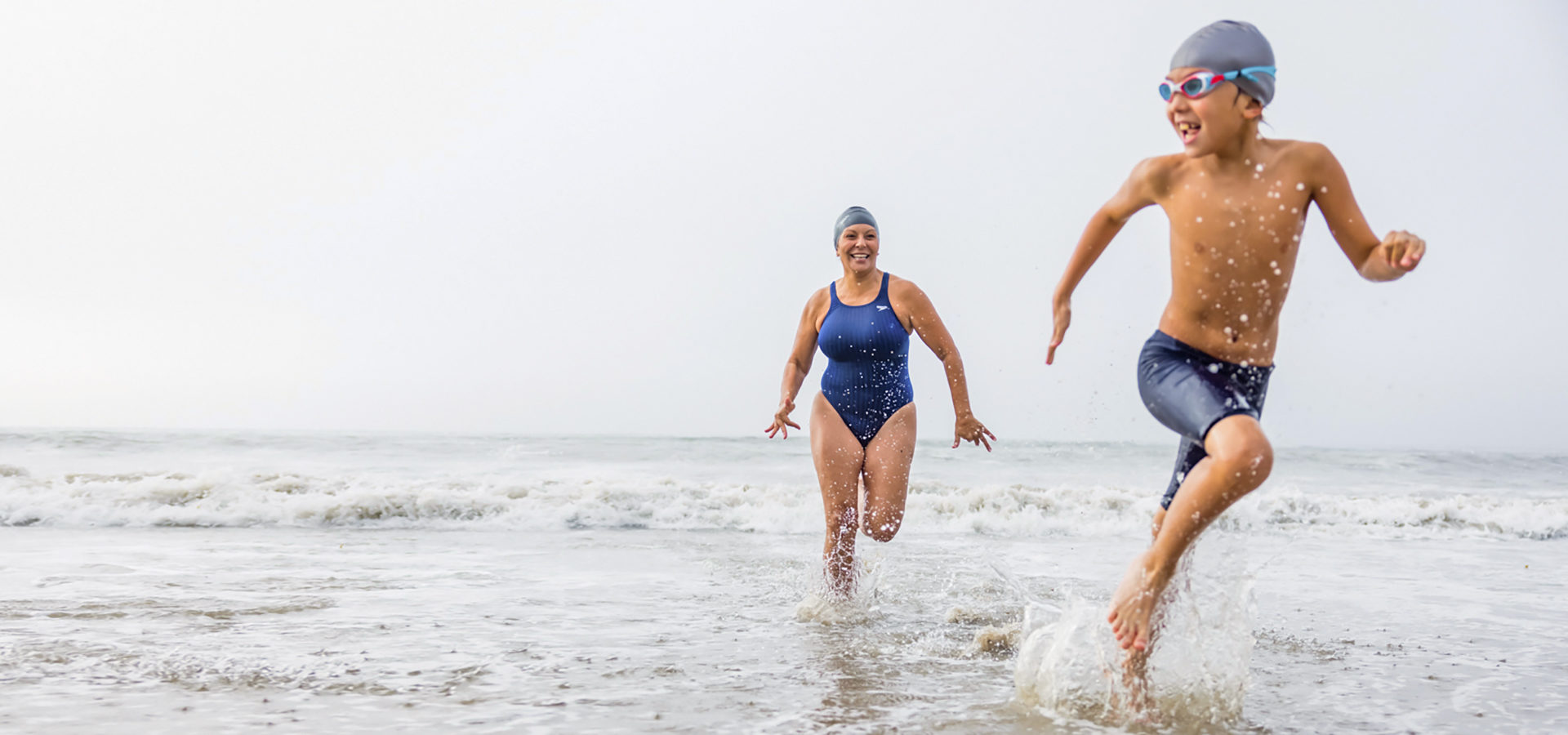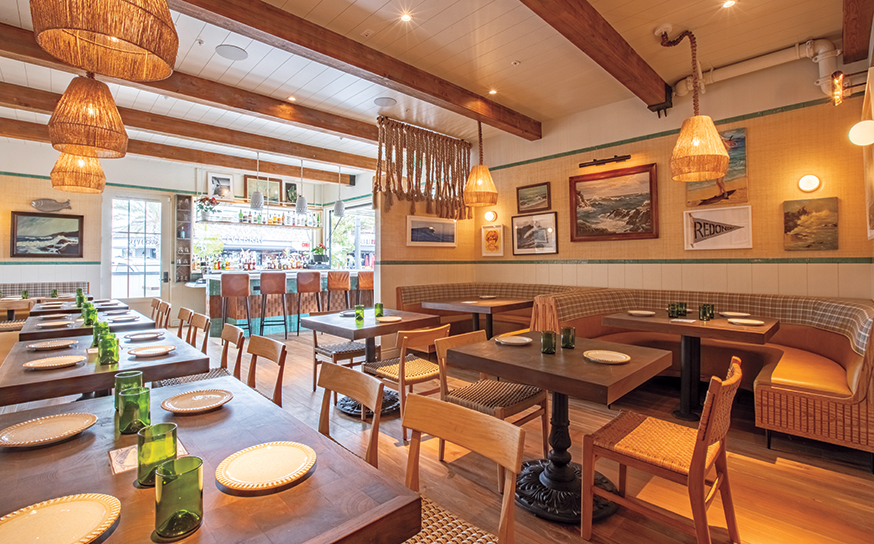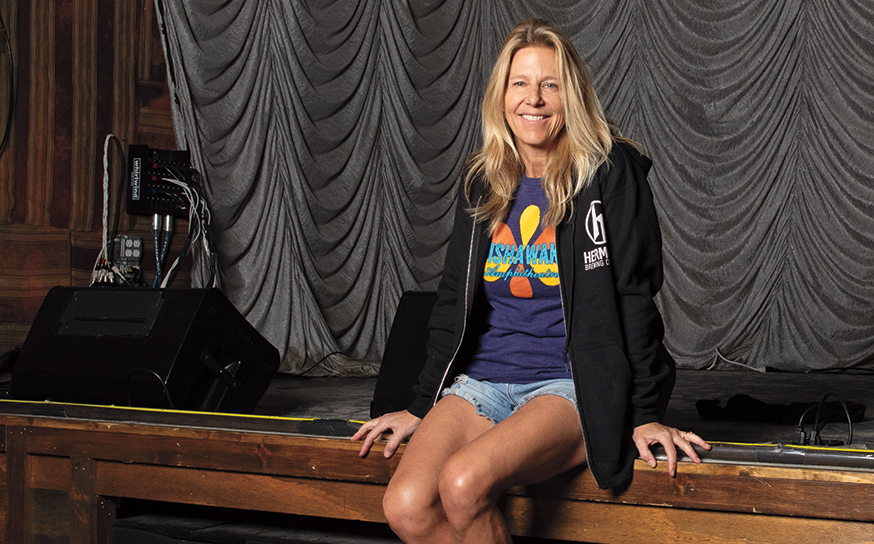Swimming gave Melody Lomboy-Lowe solace when she underwent cancer treatment from ages 6 to 9. “It gave me a sense of normalcy,” says the now 44-year-old mother of three. “Even if I was sick and in the hospital for chemo one day, I might feel strong in the water the next day.”
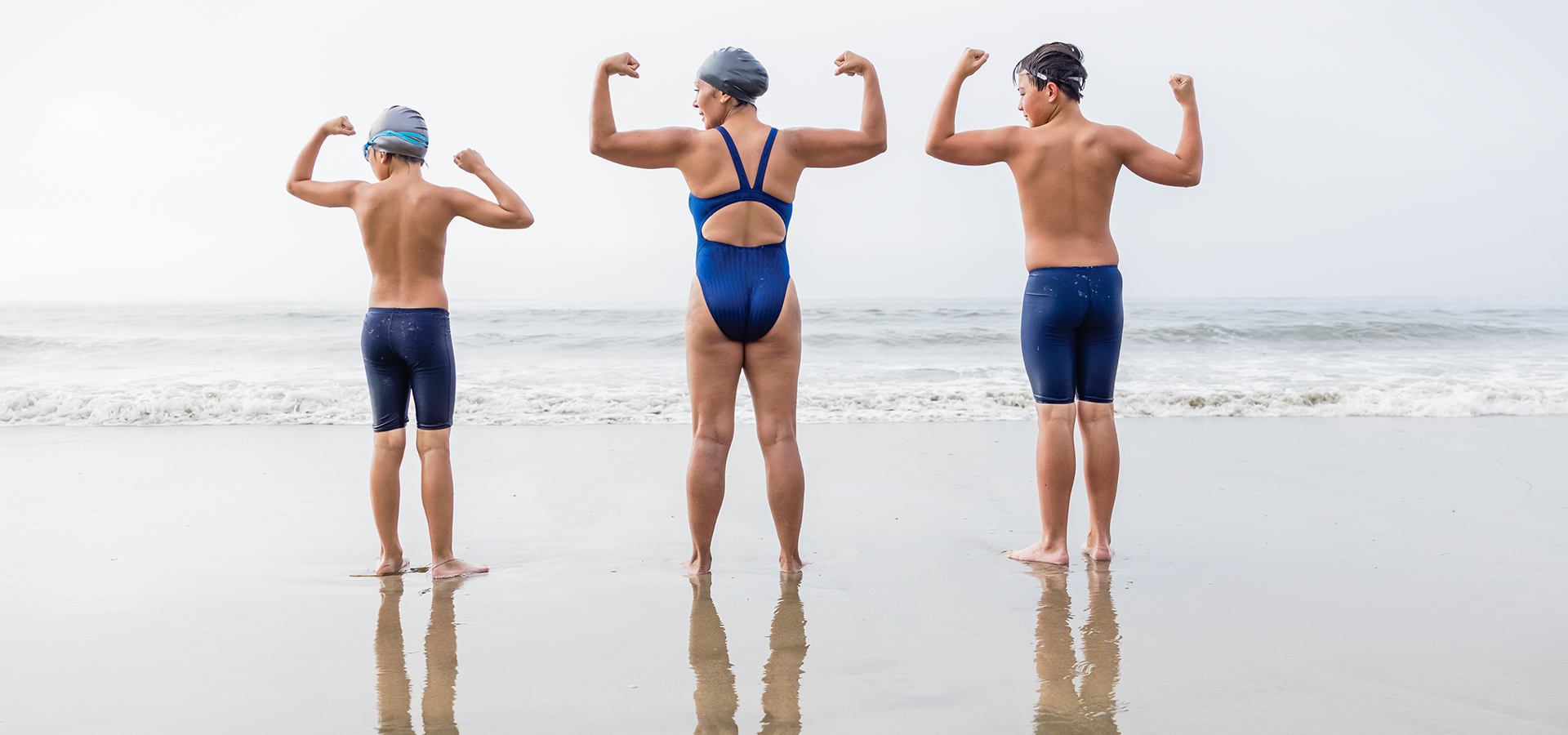
Swimming also introduced Melody to her husband, Torrance Memorial Medical Center hematologist and oncologist Thomas Lowe, MD. The two grew up in Sierra Madre and met as high school students while working as lifeguards over the summer. They both attended the University of California, Irvine—Melody on a full swimming scholarship.
Today swimming affirms her well-being. “I push myself to know that I’m strong and healthy,” says the Rancho Palos Verdes resident. Melody has shared her passion with her sons, ages 16, 12 and 9. The two oldest are junior lifeguards and have participated with their mother in the 2-mile Pier-to-Pier Swim from Hermosa Beach to Manhattan Beach.
None of this would have been imaginable when Melody was diagnosed with acute lymphoblastic leukemia in 1983. Back then, the only thing she knew about cancer was that it had claimed the life of her grandfather just one month earlier.
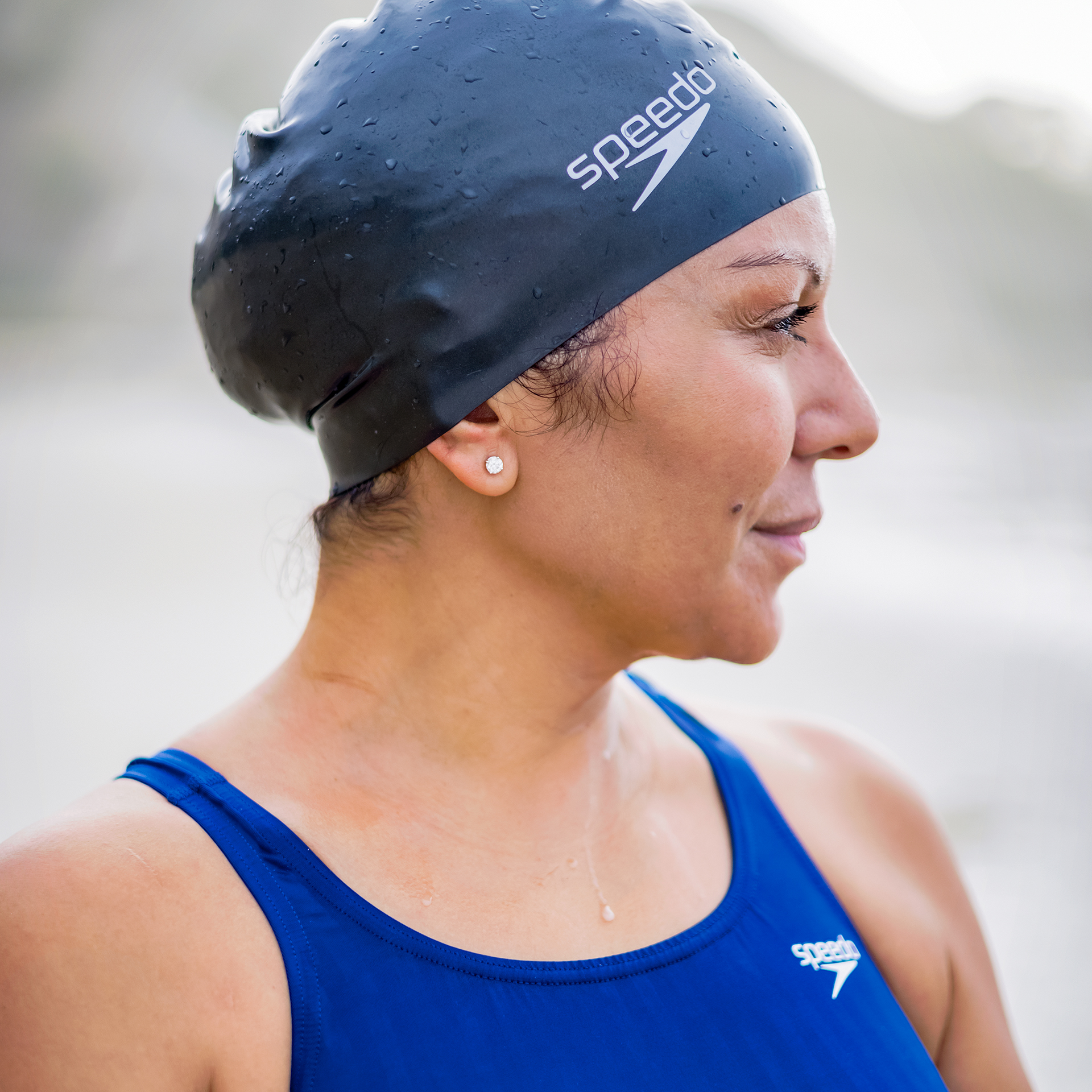
Until she began treatment at City of Hope, she and her family didn’t know any other children with cancer, much less any childhood cancer survivors. Melody was given a 50% chance of living through the year. Fortunately, she was part of a clinical trial for a drug that vanquished the cancer and is still used today.
“I became a source of hope for families whose children were diagnosed with cancer,” Melody says. “I still get phone calls—and my mom used to get phone calls— saying someone they know has cancer and asking to put those families in touch with us. We became this network for newly diagnosed cancer patients.”
“I push myself to know that I’m strong and healthy.”
She wanted to give hope to others and didn’t have a personal connection to turn to. She envisioned a book showing individuals who were thriving after cancer treatment, but she didn’t pursue the idea and grew busy raising her children.
Melody has a close relationship with her niece, Gracelyn Bateman, 12 years her junior. When Gracelyn returned from Columbia University with a master’s degree in sociology, Melody shared her idea. Gracelyn was grappling with the grief of losing her father, who died unexpectedly when she was 26, and suggested creating a similar book addressing grief.

Above: Melody and her niece Gracelyn
•••
The pair formed Luna Peak Foundation, a nonprofit celebrating life through adversity. Their first book, Beyond Remission: Words of Advice for Thriving, was released in softcover last year. It features portraits of more than 100 cancer survivors of varying ages and ethnicities, along with an inspirational quote from each.
Luna Peak has donated approximately 500 books to local hospitals. Melody hoped to present some books personally, but COVID-19 interfered. “I think COVID-19 made Beyond Remission even more important because people weren’t allowed to have a family member sit with them during chemo,” she says.
Patients can also join Luna Peak Foundation’s social media feed, which has more than 4,000 followers. “Everyone is looking for hope and to know they will be OK. Seeing someone else who’s been through it makes the journey easier,” Melody says.
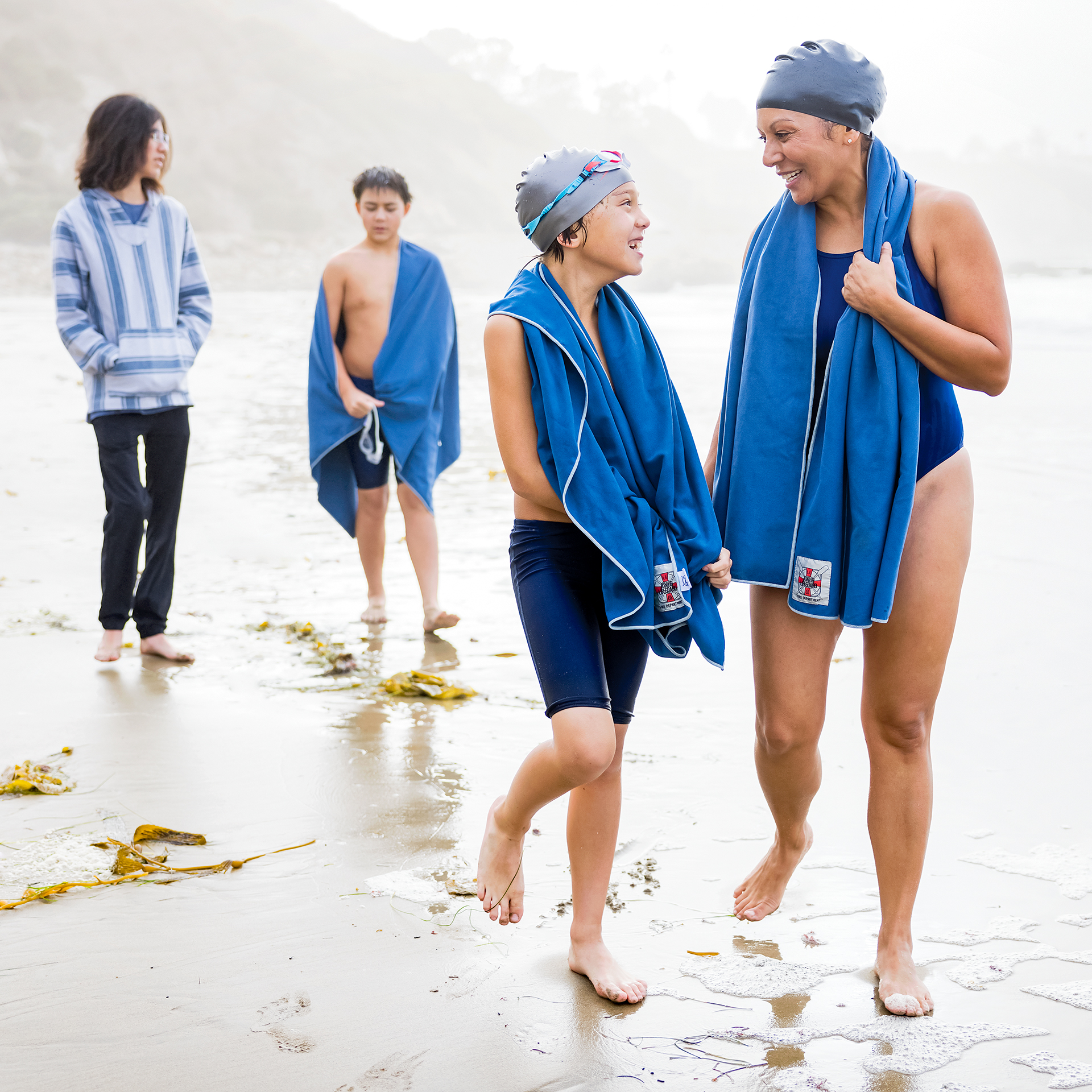
As a child undergoing treatment, she would visualize Pac-Man “eating the bad cells.” While enduring painful spinal taps to check her cells, she and her doctor would tell jokes to one another. To help children with cancer similarly distract themselves, Melody created Kicking Cancer: A Memory Book for Kids. It includes prompts for journaling and drawing, as well as games and space for supportive messages. Luna Peak released the workbook last year, along with the picture book Follow Me, Cancer Free! written by Melody and illustrated by another childhood cancer survivor.
Like the children’s workbook but geared toward adolescents and adults, The Grief Workbook provides prompts, games and quizzes designed to help people process grief. And scheduled for release in December, Beyond Grief: Snapshots of Life After Loss offers stories and thoughts from 80 individuals. They share how they continue to cope with grief and display a memento symbolizing the person they lost.
Melody acknowledges that the cancer journey doesn’t end with remission. She lives with the fear of cancer returning or striking her children. “Issues come up after cancer, including depression, anxiety and hypochondria,” she says. “But you can still have a full life.”
She’s a prime example. Melody hopes to eventually launch retreats or a summer camp for survivors and those going through treatment. And she wants to document people like herself who started a new project or endeavor after experiencing cancer. Whatever comes next, she will approach it as she approaches swimming—with confidence, enthusiasm and strength.






